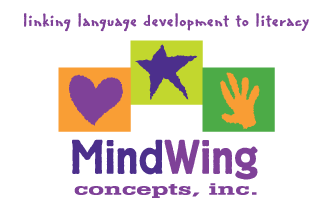Secure Checkout + FREE SHIPPING (U.S. Orders over $60)
Menu
-
- Home
-
About Us
-
The Approach
-
Linking Language & Literacy
-
Professional Learning
-
Learning Resources
-
SHOP
-
Blog
-
- About MindWing
- Our People
- Contact Us
- Your Account
- Login
-
United States (USD $)

Secure Checkout + FREE SHIPPING (U.S. Orders over $60)
Tech Tuesday: Finding the “Story” in Cooperative Games
by Sean Sweeney November 30, 2021 2 min read
In a little deviation from what might be considered “high” tech this month, I’ve recently been thinking a lot about the role of play in language  interventions. Play is closely connected to narrative, as we often use story components to structure our play. I recently presented at ASHA Convention providing a “Play on Words” (click here for the handouts), and discussed a variety of playful contexts that can be used to target language (including narrative) and social learning.
interventions. Play is closely connected to narrative, as we often use story components to structure our play. I recently presented at ASHA Convention providing a “Play on Words” (click here for the handouts), and discussed a variety of playful contexts that can be used to target language (including narrative) and social learning.
In particular, cooperative games with a shared goal and no real “winner”— except the group—can be used to target many communication skills. This type of game has been described as a context for developing perspective-taking, emotional recognition and regulation, as well as basic “shared attention and joint action with other social agents, as players will imitate other partners' play behaviors to facilitate joint engagement.”
Sure, there are video game versions of cooperative games (I love SpaceTeam and the more complicated Keep Talking and Nobody Explodes, as examples), but I also learned that graphic organizers are assistive tech, so this month we are going to go “hard copy.” I have always been a fan of Canada’s Family Pastimes, which has created a range of cooperative games that are inexpensive and vary in complexity and time needed for play. Often simple modifications of rules can be implemented so the game fits social goals and time you have on hand.
As an added bonus, the working-together context often comes with a story: roles players take (characters), a clear setting, initiating event, and (connected to the Social Thinking® concept) a group plan for what we are trying to achieve in the course of the game.
Check out these examples, with narrative analyses, below (and also those from Peaceable Kingdom); these are among many options available on the site. Be sure to include your Story Grammar Marker® manipulative, icons or magnets as part of your game setup (setup/cleanup, by the way, should be done by the kids and not you)!



Sean Sweeney
Sean Sweeney, MS, MEd, CCC-SLP, is a speech-language pathologist and technology specialist working in private practice at the Ely Center in Needham, MA, and as a clinical supervisor at Boston University. He consults with local and national organizations on technology integration in speech and language interventions. His blog, SpeechTechie (www.speechtechie.com), looks at technology “through a language lens.” Contact him at sean@speechtechie.com.
Leave a comment.
Comments will be approved before showing up.
